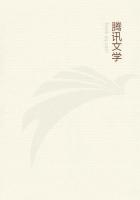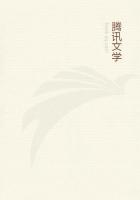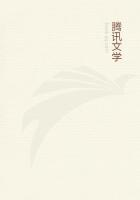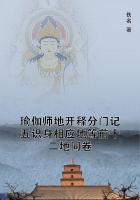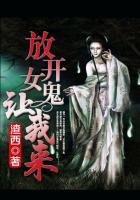we never bow to the authority of him who has no great name to sanction his absurdities. The partiality which blinds a biographer to the defects of his hero, in proportion as it is gross, ceases to be dangerous; but if it be concealed by the appearance of candour, which men of great abilities best know how to assume, it endangers our judgment sometimes, and sometimes our morals. If her Grace the Duchess of Newcastle, instead of penning her lord's elaborate eulogium, had undertaken to write the life of Savage, we should not have been in any danger of mistaking an idle, ungrateful libertine for a man of genius and virtue. The talents of a biographer are often fatal to his reader. For these reasons the public often judiciously countenance those who, without sagacity to discriminate character, without elegance of style to relieve the tediousness of narrative, without enlargement of mind to draw any conclusions from the facts they relate, simply pour forth anecdotes, and retail conversations, with all the minute prolixity of a gossip in a country town.
The author of the following Memoirs has upon these grounds fair claims to the public favour and attention; he was an illiterate old steward, whose partiality to THE FAMILY, in which he was bred and born, must be obvious to the reader. He tells the history of the Rackrent family in his vernacular idiom, and in the full confidence that Sir Patrick, Sir Murtagh, Sir Kit, and Sir Condy Rackrent's affairs will be as interesting to all the world as they were to himself. Those who were acquainted with the manners of a certain class of the gentry of Ireland some years ago, will want no evidence of the truth of honest Thady's narrative; to those who are totally unacquainted with Ireland, the following Memoirs will perhaps be scarcely intelligible, or probably they may appear perfectly incredible. For the information of the IGNORANT English reader, a few notes have been subjoined by the editor, and he had it once in contemplation to translate the language of Thady into plain English; but Thady's idiom is incapable of translation, and, besides, the authenticity of his story would have been more exposed to doubt if it were not told in his own characteristic manner. Several years ago he related to the editor the history of the Rackrent family, and it was with some difficulty that he was persuaded to have it committed to writing; however, his feelings for 'THE HONOUR OF THE FAMILY,' as he expressed himself, prevailed over his habitual laziness, and he at length completed the narrative which is now laid before the public.
The editor hopes his readers will observe that these are 'tales of other times;' that the manners depicted in the following pages are not those of the present age; the race of the Rackrents has long since been extinct in Ireland; and the drunken Sir Patrick, the litigious Sir Murtagh, the fighting Sir Kit, and the slovenly Sir Condy, are characters which could no more be met with at present in Ireland, than Squire Western or Parson Trulliber in England. There is a time when individuals can bear to be rallied for their past follies and absurdities, after they have acquired new habits and a new consciousness. Nations, as well as individuals, gradually lose attachment to their identity, and the present generation is amused, rather than offended, by the ridicule that is thrown upon its ancestors.
Probably we shall soon have it in our power, in a hundred instances, to verify the truth of these observations.
When Ireland loses her identity by an union with Great Britain, she will look back, with a smile of good-humoured complacency, on the Sir Kits and Sir Condys of her former existence.
1800.
CASTLE RACKRENT
MONDAY MORNING [See GLOSSARY 1].
Having, out of friendship for the family, upon whose estate, praised be Heaven! I and mine have lived rent-free time out of mind, voluntarily undertaken to publish the MEMOIRS OF THERACKRENT FAMILY, I think it my duty to say a few words, in the first place, concerning myself. My real name is Thady Quirk, though in the family I have always been known by no other than 'Honest Thady,' afterward, in the time of Sir Murtagh, deceased, I remember to hear them calling me 'Old. Thady,' and now I've come to 'Poor Thady'; for I wear a long greatcoat winter and summer, which is very handy, as I never put my arms into the sleeves; they are as good as new, though come Holantide next I've had it these seven years: it holds on by a single button round my neck, cloak fashion.
[The cloak, or mantle, as described by Thady, is of high antiquity. Spenser, in his VIEW OF THE STATE OF IRELAND, proves that it is not, as some have imagined, peculiarly derived from the Scythians, but that 'most nations of the world anciently used the mantle; for the Jews used it, as you may read of Elias's mantle, etc.; the Chaldees also used it, as you may read in Diodorus; the Egyptians likewise used it, as you may read in Herodotus, and may be gathered by the description of Berenice in the Greek Commentary upon Callimachus; the Greeks also used it anciently, as appeared by Venus's mantle lined with stars, though afterward they changed the form thereof into their cloaks, called Pallai, as some of the Irish also use; and the ancient Latins and Romans used it, as you may read in Virgil, who was a great antiquary, that Evander, when AEneas came to him at his feast, did entertain and feast him sitting on the ground, and lying on mantles: insomuch that he useth the very word mantile for a mantle--"Humi mantilia sternunt:"
so that it seemeth that the mantle was a general habit to most nations, and not proper to the Scythians only.
Spenser knew the convenience of the said mantle, as housing, bedding, and clothing:

